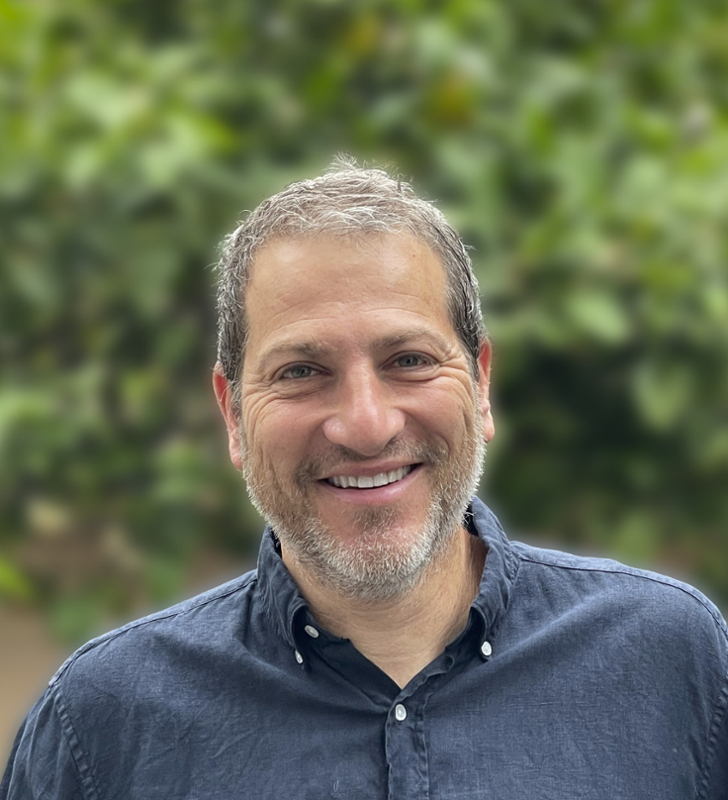Jose Pruneda-Paz
2023 URH Faculty Mentor Award Recipient

Please tell us a bit about your educational background and current research.
I obtained two undergraduate degrees, one in Clinical Biochemistry and the other one in Pharmacy, from the National University of Cordoba in Argentina. I then completed my graduate studies at the same institution working in the fields of microbiology and molecular biology. As a graduate student, I expanded my training in these fields through a research internship at the National Center for Biotechnology in Spain. After obtaining my Ph.D. degree, I moved to the United States where I performed my postdoctoral training at The Scripps Research Institute working on plant circadian rhythms and molecular biology. Finally, I established my independent research program at UC San Diego, which is focused on understanding how environmental stresses, such as microbial pathogen infections, alter the circadian system in plants. In particular, we investigate how stress signals that are perceived by only a small part of the plant (for instance an infection of a single leaf) drive changes in the circadian system that extend to the entire plant and ultimately reduce plant fitness. Uncovering how these responses work at the molecular level will help us better understand fundamental aspects of plant biology and provide critical knowledge to devise strategies for improving the performance and production of crops in the field. Furthermore, our research impact is likely to extend even beyond plants as the circadian system is present in most life forms on our planet (from bacteria to humans).
Did you do research as an undergraduate student? How did you get started in your current field?
As an undergraduate student I was fortunate to experience laboratory work in two different settings: a research laboratory working on leaky gut in mice and a clinical laboratory doing diagnostic tests in human blood samples. After graduation, I volunteered in a clinical research lab where I took my first steps in the field of molecular biology by optimizing a method to diagnose a rare genetic disease. I transitioned to basic research for my graduate work where I continued utilizing molecular biology tools and strategies to investigate how a specific type of bacteria could metabolize environmental pollutants. Finally, I got into the circadian biology field during my postdoctoral work, where I continued using molecular biology approaches to investigate how the circadian clock functions in plants. In summary, I got started into the molecular biology field early on in my career transitioning from clinical diagnostics, to microbiology and finally to plant biology.
Who are some of your most memorable mentors? How did you meet them?
I got outstanding mentorship at all stages of my career. However, the mentors that most impactfully influenced my career are unquestionably my graduate mentor, who guided me through my first steps in research, and my postdoctoral advisor, who introduced me to my current field of study. I met both of them in very different ways. I met my graduate mentor in class, as she was the instructor of an undergraduate course that I took. So, I communicated with my prospective graduate advisor “in person” and was able to learn about her research directly from her. These interactions in the classroom setting ultimately led me to a volunteer position in her lab, and finally the possibility to perform graduate research under her supervision at the National University of Cordoba in Argentina. Living abroad made the process to approach my postdoctoral research mentor quite different. I first learned about his research program through publications and interacted with him mostly by email, which then led to an “in person” interview and an offer to join his laboratory at The Scripps Research Institute here in La Jolla.
Why do you enjoy being a mentor?
I really enjoy interacting with students in the laboratory setting, from planning experiments to discussing and interpreting results, and being challenged by their curiosity and their unique training needs. It is fulfilling for me to see students grow as young scientists and to help them prepare to take the next step in their careers. Being part of this process is also educational for me as I also learn from students and grow as a mentor with them.
What is the most useful piece of advice a mentor gave you?
I cannot think of one single piece of advice but rather the collective mentoring philosophy of both my graduate and postgraduate mentors. Becoming a father at a young age and moving with my wife and two daughters to a foreign country, where we were far from our families and barely knew the language and culture, was tremendously challenging. Thus, my mentors’ unconditional trust, support and understanding were instrumental for me to be able to pursue a career in science. As a mentor, I try to follow their example and provide the best possible conditions to help students succeed in their careers.